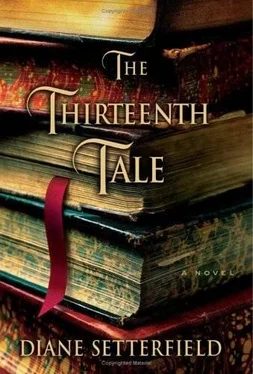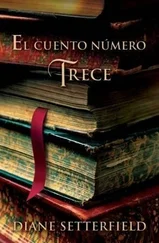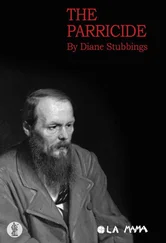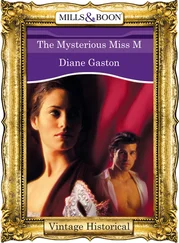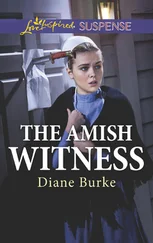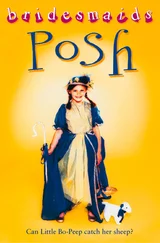His name was John-the-dig, John Digence to those who didn't know him. Never a great one for writing, once the school years were past (and they were soon past, for there were not many of them), he took to leaving off the last letters of his surname to save time. The first three letters seemed more than adequate: Did they not say who he was, what he did, more succinctly, more accurately, even, than his full name? And so he used to sign himself John Dig, and to the children he became John-the-dig.
He was a colorful man. Blue eyes like pieces of blue glass with the sun behind. White hair that grew straight up on top of his head, like plants reaching for the sun. And cheeks that went bright pink with exertion when he was digging. No one could dig like him. He had a special way of gardening, with the phases of the moon: planting when the moon was waxing, measuring time by its cycles. In the evening, he pored over tables of figures, calculating the best time for everything. His great-grandfather gardened like that, and his grandfather and his father. They maintained the knowledge.
John-the-dig's family had always been gardeners at Angelfield. In the old days, when the house had a head gardener and seven hands, his great-grandfather had rooted out a box hedge under a window and, so as not to be wasteful, he'd taken hundreds of cuttings a few inches long. He grew them on in a nursery bed, and when they reached ten inches, he planted them in the garden. He clipped some into low, sharp-edged hedges, let others grow shaggy, and when they were broad enough, took his shears to them and made spheres. Some, he could see, wanted to be pyramids, cones, top hats. To shape his green material, this man with the large, rough hands learned the patient, meticulous delicacy of a lacemaker. He created no animals, no human figures. Not for him the peacocks, lions, life-size men on bicycles that you saw in other gardens. The shapes that pleased him were either strictly geometric or bafflingly, bulgingly abstract.
By the time of his last years, the topiary garden was the only thing that mattered. He was always eager to be finished with his other work of the day; all he wanted was to be in "his" garden, running his hands over the surfaces of the shapes he had made, as he imagined the time, fifty, a hundred years hence, when his garden would have grown to maturity.
At his death, his shears passed into the hands of his son and, decades later, his grandson. Then, when this grandson died, it was John-the-dig, who had finished his apprenticeship at a large garden some thirty miles away, who came home to take on the job that had to be his. Although he was only the undergardener, the topiary had been his responsibility from the very beginning. How could it be otherwise? He picked up the shears, their wooden handles worn to shape by his father's hand, and felt his fingers fit the grooves. He was home.
In the years after George Angelfield lost his wife, when the number of staff diminished so dramatically, John-the-dig stayed on. Gardeners left and were not replaced. When he was still a young man he became, by default, head gardener, though he was also the only gardener. The workload was enormous; his employer took no interest; he worked without thanks. There were other jobs, other gardens. He would have been offered any job he had applied for-you only had to see him to trust him. But he never left Angelfield. How could he? Working in the topiary garden, putting his shears into their leather sheath when the light began to fade, he didn't need to reflect that the trees he was pruning were the very same trees that his great-grandfather had planted, that the routines and motions of his work were the same ones that three generations of his family had done before him. All this was too deeply known to require thought. He could take it for granted. Like his trees, he was rooted to Angelfield.
What were his feelings that day, when he went into his garden and found it ravaged? Great gashes in the sides of the yews, exposing the brown wood of their hearts. The mop-heads decapitated, their spherical tops lying at their feet. The perfect balance of the pyramids now lopsided, the cones hacked about, the top hats chopped into and left in tatters. He stared at the long branches, still green, still fresh, that were strewn on the lawn. Their slow shriveling, their curling desiccation, their dying was yet to come.
Stunned, with a trembling that seemed to pass from his heart to his legs and into the ground beneath his feet, he tried to understand what had happened. Was it some bolt from the sky that had picked out his garden for destruction? But what freak storm is it that strikes in silence?
No. Someone had done this.
Turning a corner he found the proof: abandoned on the dewy grass, blades agape, the large shears and next to them the saw.
When he didn't come in for lunch, the Missus, worried, went to find him. Reaching the topiary garden she raised a hand to her mouth in horror, then, gripping her apron, walked on with a new urgency.
When she found him, she raised him from the ground. He leaned heavily on her as she led him with tender care to the kitchen and sat him in a chair. She made tea, sweet and hot, and he stared, unseeing, into space. Without a word, holding the cup to his lips, she tilted sips of the scalding liquid into his mouth. At last his eyes sought hers, and when she saw the loss in them, she felt her own tears spring up.
"Oh Dig! I know. I know." His hands grasped her shoulders and the shaking of his body was the shaking of her body.
The twins did not appear that afternoon, and the Missus did not go to find them. When they turned up in the evening, John was still in his chair, white and haggard. He flinched at the sight of them. Curious and indifferent, their green eyes passed over his face just as they had passed over the drawing room clock.
Before she put the twins to bed the Missus dressed the cuts on their hands from the saw and the shears. "Don't touch the things in John's shed," she grumbled. "They're sharp; they'll hurt you."
And then, still not expecting to be heeded, "Why did you do it? Oh, why did you do it? You have broken his heart." She felt the touch of a child's hand on hers. "Missus sad," the girl said. It was Emmeline.
Startled, the Missus blinked away the fog of her tears and stared.
The child spoke again. "John-the-dig sad."
"Yes," the Missus whispered. "We are sad."
The girl smiled. It was a smile without malice. Without guilt. It was simply a smile of satisfaction at having noted something and correctly identified it. She had seen tears. She had been puzzled. But now she had found the answer to the puzzle. It was sadness.
The Missus closed the door and went downstairs. This was a breakthrough. It was communication, and it was the beginning, perhaps, of something greater than that. Was it possible that one day the girl might understand}
She opened the door to the kitchen and went in to rejoin John in his despair.
That night I had a dream.
Walking in Miss Winter's garden, I met my sister.
Radiant, she unfolded her vast golden wings, as though to embrace me, and I was filled with joy. But when I approached I saw her eyes were blind and she could not see me. Then despair filled my heart. Waking, I curled into a ball until the stinging heat on my torso had subsided.
MERRILY AND THE PERAMBULATOR
Miss Winter's house was so isolated, and the life of its inhabitants so solitary, that I was surprised during my first week there to hear a vehicle arriving on the gravel at the front of the house. Peering from the library window, I saw the door of a large black car swing open and caught a glimpse of a tall, dark-haired man. He disappeared into the porch and I heard the brief ring of the bell.
Читать дальше
